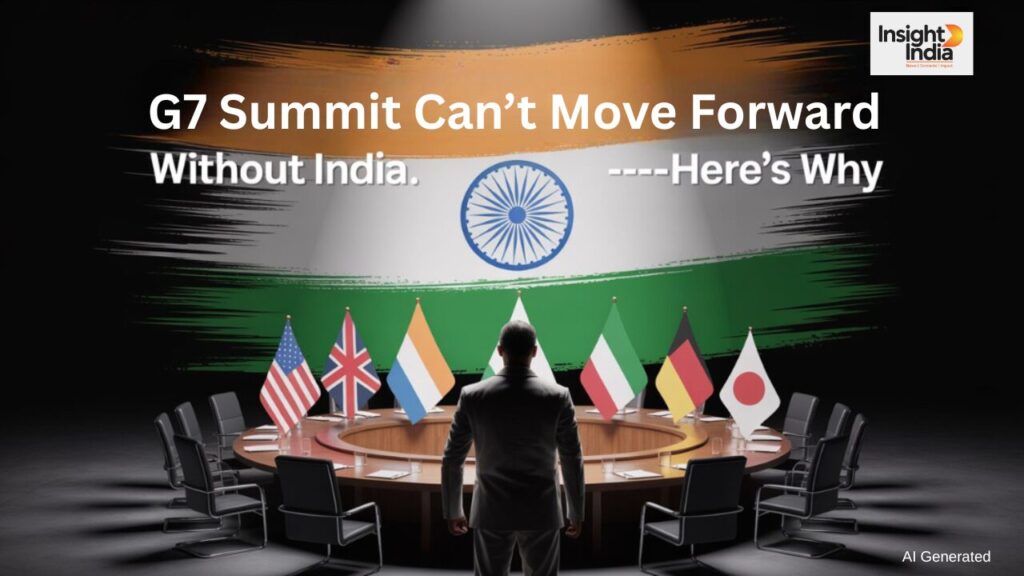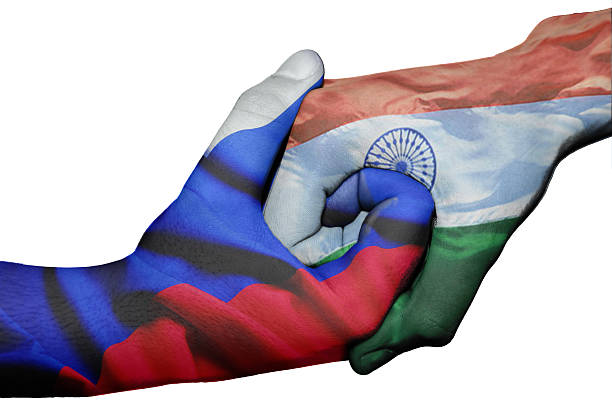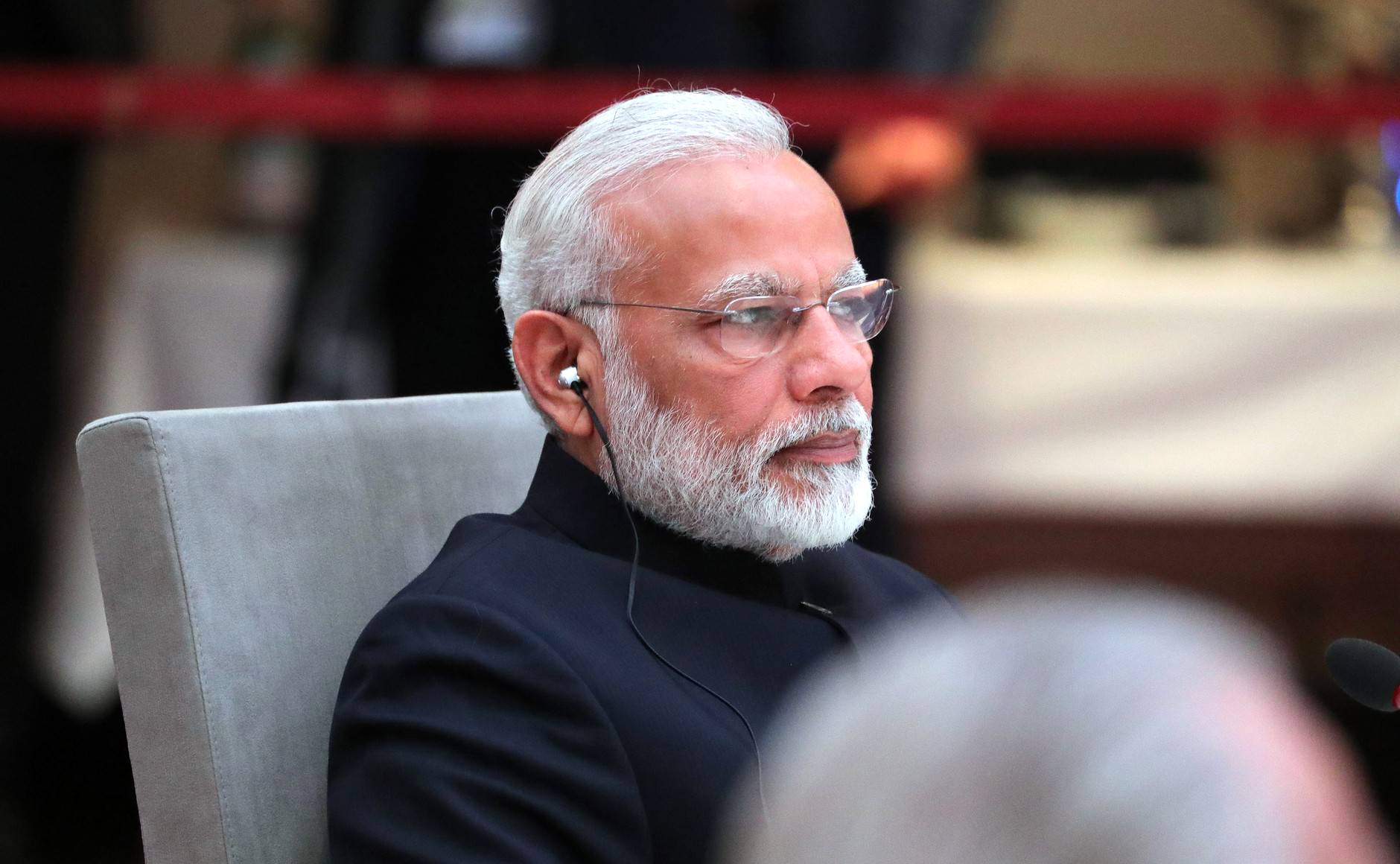G-7 Summit: The G7 countries view India as a strong partner capable of countering China’s influence in the Indo-Pacific. As a member of the Quad alliance with the US, Japan, and Australia, India plays a vital role in maintaining regional balance and promoting security.

G-7 Summit: G7 Talks in Canada, Why India Has Become Indispensable
The ongoing G7 Summit in Canada has grown in importance for India, now a key player on the global stage. Initially, India’s invitation raised eyebrows—even Pakistan and domestic opposition rejoiced in its absence. But India’s inclusion has silenced critics and underscored its rising influence.
Since 2019 (except the canceled 2020 edition), Prime Minister Narendra Modi has been a consistent presence at G7 Summits—marking six consecutive participations. This recognition from the world’s richest democracies highlights India’s growing economic and strategic influence. A Hudson Institute article from May 2023 titled “India is Always Invited to G7. Why Is That So Important?” observed India’s expanding global stature. Experts now predict India could evolve from a frequent invitee to a full-fledged G7 member, although New Delhi may tread carefully to preserve its independent foreign policy.
Let’s examine the key reasons India’s presence has become essential at major G7 meetings, and what this signifies for the world.
1. India Poised to Become the World’s Third-Largest Economy
India is currently the fourth-largest economy in the world and is expected to surpass the UK to claim the third spot within the next year. G7 members recognize India as a crucial player in global supply chains. Canadian Prime Minister Mark Carney, in inviting India, emphasized its position at the center of key economic discussions. India’s growing economic strength is making an impact on trade, investment, and the stability of international markets.
2. Geopolitical Significance in a Turbulent Region
With the world’s largest population and rising military capabilities, India stands out as a democratic counterweight to China and Russia. The Indo-Pacific region, where India holds strategic influence, is of growing interest for G7 nations—especially amidst concerns over China’s assertiveness. India’s democratic governance, regional partnerships, and robust strategic position make it an essential voice in global security planning.
3. A Respected Voice of the Global South
India has emerged as a powerful representative of the Global South. G7 countries—predominantly wealthy Western democracies—see value in including India to gain broader consensus on international matters. India’s presidency of the G20 in 2023 reinforced this position. During that tenure, Foreign Minister S. Jaishankar urged Europe to rethink its worldview: Europe’s challenges aren’t universal, and the world doesn’t revolve around Europe. India’s leadership has strengthened its ability to represent developing nations in forums like the G7.
4. Contributions to Global Challenges
The G7 Summit tackles climate change, digital transformation, energy security, and international peace—areas where India brings substantive input. The nation’s rapid progress in renewable energy, growing digital economy, and technological research lend significant value to international discussions. As the world’s largest democracy, India also aligns firmly with G7 values, distinguishing it from authoritarian regimes.
5. PM Modi’s Global Persona
Modi’s repeated presence at the G7 (excluding the COVID-canceled 2020 summit) underscores India’s leadership in global diplomacy. His active global outreach—seen through high-profile engagements like the G20 presidency and participation in the Quad—has earned him respect among G7 leaders. These nations appreciate the candid bilateral dialogues they hold directly with Modi.
6. Balancing China’s Influence
Tensions with China are a growing concern among Western powers. Beijing’s aggressive regional policies and authoritarian governance have prompted the G7 to seek democratic allies. India’s commitment to the rules-based international order—evident in its respect for UN rulings on the South China Sea—sets it apart. Its role in the Quad alliance (alongside the US, Japan, and Australia) is viewed by G7 members as essential to counterbalance China’s expanding influence.
7. Keeping the G7 Relevant
The Hudson Institute notes that the G7’s influence has waned. By bringing in powerful democracies like India, the G7 can regain global relevance. India’s independent foreign policy—rooted in non-alignment and pragmatism—adds credibility and fresh perspectives to Western-led discussions. While full membership may create diplomatic complexities, India’s participation signals a shared recognition of a more multipolar world.
India’s sustained presence at the G7 Summit is no coincidence. As its economic clout, strategic value, democratic credentials, and diplomatic maturity grow, India has become a core member of this elite group—even without formal membership. The world is taking notice, and the G7’s future is likely to include India more deeply in its decision-making circles.
Also Read:
- G7 Summit 2025: PM Modi Reaches Canada for Talks on Major Issues
- G7 Summit 2025: Why It Was Formed & How It Impacts the World
- Major Progress in India-EU FTA, Says EAM Jaishankar
Author

Sahil V
Sahil V. is a passionate contributor at InsightIndia.in, specializing in world geopolitics and job-related updates. With a keen understanding of global affairs and employment trends, he delivers insightful articles that help readers stay informed and make smarter career decisions in a rapidly changing world.














